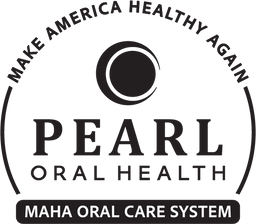Wondering what is meant by “non abrasive” toothpaste? You’re not the only one.
In recent years, consumers have become more health-conscious, causing many to question some of the common ingredients found in toothpaste (we’re looking at you, fluoride). And since then, consumers have also wanted to learn more about the impact of toothpaste’s abrasiveness on their oral health.
As oral care brands have caught on, many are now marketing “non abrasive” toothpaste, which begs the question, “what even is a non abrasive toothpaste?”.
Well, keep reading, because we’re going to break down exactly what it means for toothpaste to be “non abrasive”, as well as how abrasiveness is measured, and whether a toothpaste with less-abrasivity is actually better.
What Does “Non-Abrasive Toothpaste” Mean?
So, what is non abrasive toothpaste? The first thing to know is that there is no such thing as a truly non abrasive toothpaste.
All toothpaste is abrasive to some extent, some more than others—it completely depends on the composition and ingredients. Even using a toothbrush with just water has some level of abrasiveness. So, when you hear the term “non abrasive toothpaste,” it is referring to toothpaste with a lower level of abrasiveness—not one that is completely non abrasive.
How Is Abrasiveness Measured?
The American Dental Association (ADA) established an abrasiveness scale, called RDA (Relative Dentin Abrasivity) to measure toothpaste abrasiveness. The safe range is 0 to 250, with anything over 250 being considered unsafe and potentially hazardous to the enamel. Here is the breakdown of that scale:
- 0-70: Low Abrasivity
- 70-100: Medium Abrasivity
- 100-150: High Abrasivity
- 150-250: Extreme Abrasivity
This scale is used to develop new oral care products and acts as a guide for consumers and quality control for toothpaste being released to the market.
Is Less Abrasive Toothpaste Better?
As mentioned above, all toothpaste has some level of abrasivity—and that’s a good thing! After all, the abrasive elements in toothpaste help remove stains and plaque from teeth. That said, there are downsides to using kinds of toothpaste that are too abrasive for your mouth. Even though toothpaste between 0 and 250 is considered “safe” according to the RDA scale, there can be side effects from using toothpaste on the mid to upper end of that scale.
That’s because, over time, ingredients in highly abrasive toothpaste can wear off more than plaque and stains—they can also damage tooth enamel.
Whitening toothpaste can be especially abrasive. These types of toothpaste typically contain an ingredient called silica, which is highly effective at removing stains from teeth but can also wear down the enamel—especially if used long-term.
So, the best thing to do is to find a toothpaste with low abrasivity. Coupling that with natural teeth whitening and cleaning methods will help protect your enamel and improve your overall oral health.
How Can You Tell if a Toothpaste Is Too Abrasive?
If you experience tooth or gum sensitivity, pain when you brush your teeth or have receding gum lines, your toothpaste might be too abrasive. These are signs that something is harming your mouth, and if you’re using a highly abrasive toothpaste it might be the culprit.
Do you have dental implants, crowns, or dentures? You’re also going to want to use less-abrasive toothpaste. These replacements to lost or damaged teeth cannot be whitened by abrasive toothpaste, and the abrasive ingredients may even cause damage.
How You Brush Matters
There’s another factor that can increase abrasivity that isn’t found in your toothpaste: your brushing habits.
We know how easy it is to get too excited when you go to brush your teeth in the morning (just us?), but brushing too aggressively can increase abrasivity significantly. So, take note of how your teeth and gums feel after you brush them. Do your gums bleed when you brush? Do you experience any pain or sensitivity? Another option before you blame it on your toothpaste is to try a soft-bristled toothbrush and be gentler when brushing your teeth.
Choosing A Non Abrasive Toothpaste
There are a lot of non-abrasive (aka less-abrasive) toothpaste options out there to choose from. That said, not all toothpaste is created equal.
At Pearl Oral Health, we take great care to only use all-natural and quality ingredients in all our products, including toothpaste. We’ve tried a variety of natural products over the years, however, we wanted to be able to select the best ingredients and create a toothpaste that we know is the best when it comes to ingredients and quality.
Our Pearl Natural Toothpaste is non abrasive and all natural, with no harmful ingredients such as fluoride.
It contains six essential oils and an ingredient called carbamoyl phosphate, which actually helps remineralize teeth.
Shop the Pearl Natural Toothpaste for a great non abrasive toothpaste option with no toxic ingredients for a holistic approach at your oral care.
And here’s a bonus for you: For toothbrushes, we recommend the Sonicare Toothbrush. It helps break up bacteria and reduces plaque build-up, while also decreasing gum recession. There are several different models to choose from, including some for kids.


